
Error: No layouts found
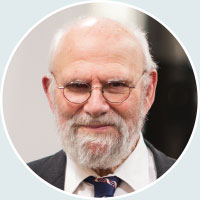
Dr. Oliver Sacks, the eminent neurologist and author, died of cancer on August 30, 2015. He was 82.
Dr. Sacks came to Einstein in 1965 for a fellowship in the newly formed department of neurology. He joined the faculty in 1967, as a clinical instructor of neurology, and rose to the rank of clinical professor, a position he held until 2007.
Realizing he wasn’t suited for basic research, Dr. Sacks focused on chronically ill patients at nearby Beth Abraham Hospital. As the Einstein neurology website notes, “His weekly case conferences became the highlight of the medical students’ neurology rotations.”
In 1967, he offered the drug L-DOPA to postencephalitic patients who had been languishing at Beth Abraham since the 1918 influenza pandemic. He described the drug’s startling if temporary benefits in his 1973 book Awakenings. Actor Robin Williams portrayed him in the Oscar-nominated film of the same name.
Dr. Sacks was diagnosed with a rare ocular melanoma in 2006. He was treated at Memorial Sloan Kettering Cancer Center by his former Einstein protégé David H. Abramson, M.D. ’69, to whom he dedicated his book The Mind’s Eye.
Among Dr. Sacks’ other books are Migraine, Musicophilia, A Leg to Stand On, Seeing Voices and the best-selling The Man Who Mistook His Wife for a Hat. (See “A Look Back” )
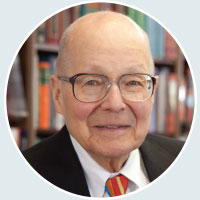
Einstein distinguished university professor emeritus of medicine Dr. Milford Fulop passed away on November 26, 2015, at the age of 88.
Dr. Fulop completed an internal medicine residency at Columbia-Presbyterian Medical Center and in 1955 was recruited to the new Albert Einstein College of Medicine to develop the medicine residency program at Bronx Municipal Hospital Center (later renamed Jacobi Medical Center). He went on to become a professor and the Gertrude and David Feinson Chair in Medicine. He also served as vice chair and director of medicine at Jacobi.
He received numerous awards, including Einstein’s Lifetime Achievement Award for Excellence in Clinical Teaching and the Silver Anniversary Honorary Alumnus Award of Einstein’s first graduating class.
Dr. Fulop carried out animal studies of renal excretion of bilirubin and phosphate, and human studies of acid-base disturbances. He retired in 2010 after 55 years on the Einstein faculty.
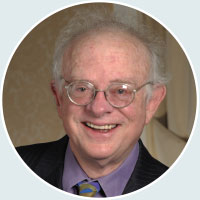
Dr. John Arras, one of the original faculty members of the certificate program in bioethics, died on March 9, 2015, at the age of 69.
Dr. Arras’ research interests were physician-assisted suicide, rationing of medical care and social disparities in health conditions and care. In 1981, while on leave as chair of the philosophy department at the University of Redlands in California, he was appointed to the clinical staff of Montefiore as a philosopher. He went on to serve as an associate professor of bioethics at Einstein from 1981 to 1995.
Professor Arras later taught biomedical ethics, philosophy and public health sciences at the University of Virginia, served on the Presidential Commission for the Study of Bioethical Issues and was a founding member of the ethics advisory board of the Centers for Disease Control and Prevention.
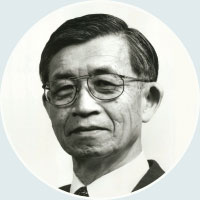
Dr. Yasuhiko Taketomo, a clinical professor emeritus of psychiatry and department member for more than 45 years, died on October 14, 2015, at the age of 94.
A graduate of Osaka University in Japan, Dr. Taketomo came to Einstein early in his career (1970) and never left. He became an attending physician at Montefiore and the Jack D. Weiler Hospital in 1976, and head of the transcultural psychiatry component of the Research Fellowship Progressive in Einstein’s department of psychiatry in 1988. In addition to writing articles for professional journals, he was a contributing author of two books, The World Biennial of Psychiatry and Psychotherapy and Psychoanalysis and the Nuclear Threat: Clinical and Theoretical Studies. With a colleague, he edited another book, The Japanese and Life-Threatening Illness, Loss and Grief. Upon retiring, he became a private-practice psychiatrist who helped patients with many conditions, including attention deficit disorder, bipolar disorder, depression, insomnia and schizophrenia.
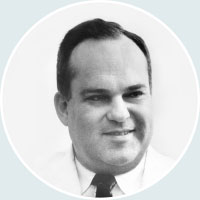
Dr. Laurence Finberg, a pediatrician and scientist known for contributing to the management of salt/water balance in children, died on January 22, 2016, at the age of 92.
Dr. Finberg began his career in academic pediatrics at Johns Hopkins Medical School. In 1963 he became chair of pediatrics at Montefiore Hospital and professor of pediatrics at Einstein, where he remained for nearly two decades. He later served as chair of pediatrics and dean of the School of Medicine at SUNY Downstate in Brooklyn. After he retired from SUNY, he taught pediatrics at the Stanford and University of California–San Francisco medical schools.
Dr. Finberg wrote many original papers and two books on fluid and electrolyte abnormalities in children, and became an international authority on dehydration and rehydration in infants. He was also an expert in diagnosing and treating lead poisoning in children and promoted the idea of testing the environment rather than waiting to find high lead levels in children. He served as president of the American Board of Pediatrics and chair of the American Academy of Pediatrics’ committees on nutrition and environmental hazards.